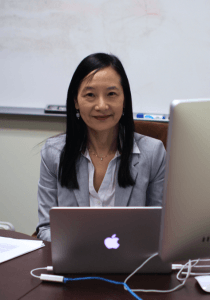We’ve all received an email that makes us pause and wonder,
“…is this real or spam?”

iSchool assistant professor Shuyuan Ho has started to crack the code behind online deception. Inspired by Alan Turing, the mathematician whose Enigma machine broke German ciphers in the World War II, Dr. Ho set out to create an algorithm to detect dishonesty online.
Dr. Ho explains that all ranges of people are impacted by deception online. College students who buy faulty items online, employees click on email links that compromise their systems, not to mention the infamous Nigerian Prince scheme that befell many elderly folk. Dr. Ho says it isn’t uncommon for executive level security professionals to be phished by scam emails.
Her research was recently published in the Journal of Management Information Systems. Her work, “Computer-Mediated Deception: Strategies Revealed by Language-Action Cues in Spontaneous Communication” detailed the study of how people deceive one another in online interpersonal relationships, and how a computational approach is proven possible to spot out online deception.
Ho and her colleagues at the iSensor Lab developed a game, Saints and Sinners, which aggregated data into an interactive game. Players were presented with statements and asked to guess if the statement came from a ‘saint’ or a ‘sinner’.
While our human intelligence interprets honesty, the computational code is able to detect based on tone and content of messages. Through research, Ho and her researchers have found that honest statements are often self-referencing, with a negation tone. Dishonest statements are commonly more other-referencing and wordy with sophistication and peripheral expression.

